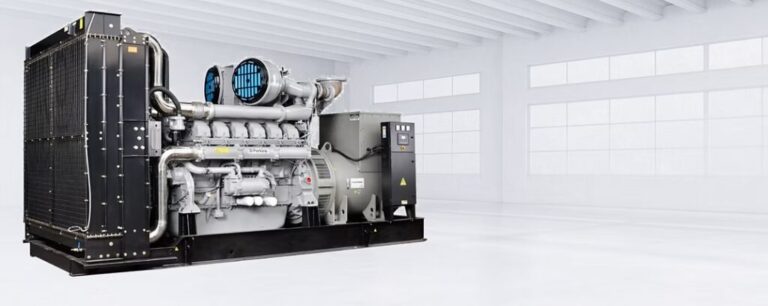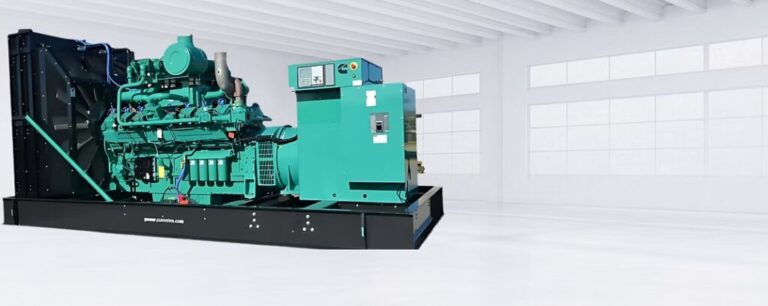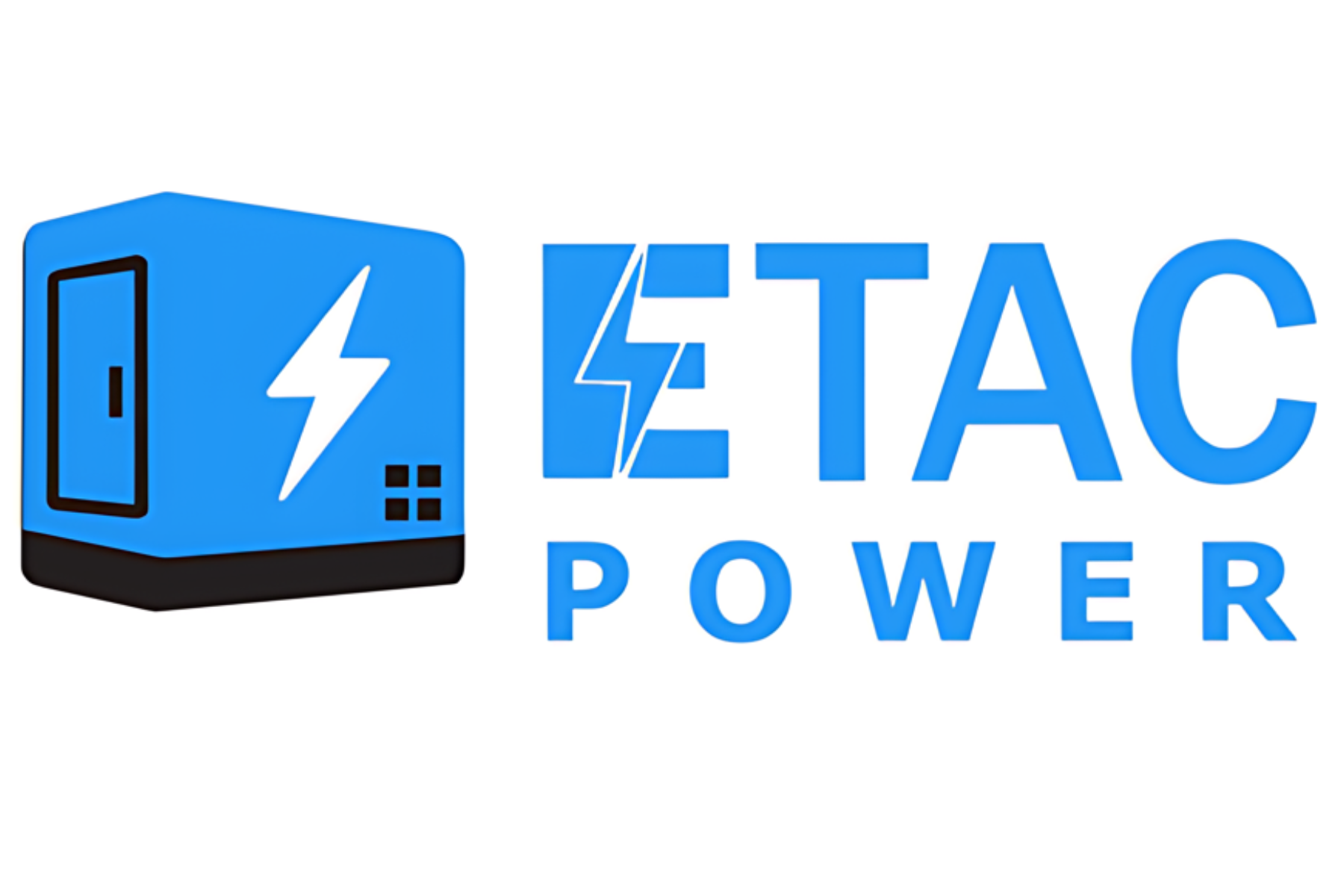Perkins vs Cummins Diesel Generators Comparison: Which One Should You Choose?

When it comes to reliable backup and industrial power, businesses often find a clear Perkins vs Cummins diesel generators comparison. Both brands are well-established, globally trusted, and widely used across commercial, construction, and industrial sectors. But which one truly meets the demands of your specific application?
Choosing between Cummins and Perkins isn’t just about engine brand recognition—it’s about service availability, lifecycle costs, power output consistency, and long-term reliability. In this article, we’ll help you break down the pros and cons of each, so you can confidently choose the best generator brand for industrial use based on your operational needs.


Key Differences Between Perkins vs Cummins Diesel Generators Comparison
At the core of the Perkins vs Cummins diesel generators debate are key performance attributes like fuel efficiency, engine durability, and technology integration.
Cummins diesel generator features are known for:
- Advanced digital control systems
- Robust performance in both standby and continuous operations
- Exceptional fuel economy under variable loads
Perkins generators, on the other hand, are widely recognized for:
- Lower initial costs for certain power classes
- Easy-to-service engine layouts
- Strong performance in mid-range power capacities
If you’re evaluating Cummins vs Perkins diesel engines, it’s worth noting that Cummins designs both engines and generator sets as integrated solutions. This can result in smoother operation and better synchronization between components, especially in larger, best generator brand for industrial use comparisons.
Performance and Reliability: How Perkins and Cummins Stack Up
In industrial settings, generator reliability is non-negotiable. Downtime from power failure can lead to serious operational losses, so it’s critical to choose a system known for dependable performance.
Cummins generators often lead in terms of consistent performance under continuous or peak load conditions. They are commonly used in mission-critical facilities like hospitals, data centers, and mining operations—scenarios where performance must be guaranteed.
Perkins generators are typically more favored for agricultural applications, light construction, or smaller businesses. They can perform well in lower-demand situations but may lack some of the robust endurance capabilities Cummins offers at higher power classes.
If your business relies on power-intensive equipment or needs extended runtime capability, Cummins is generally the preferred option. For lighter use or cost-sensitive applications, Perkins may deliver solid performance at a lower cost.
Availability of Parts and Support Services
The availability of service parts and technical support can influence your long-term satisfaction and maintenance costs.
Cummins has a more extensive global service network and offers support in over 190 countries. This makes it easy to get spare parts and certified technicians, especially if your operation spans multiple regions or remote locations. Their remote monitoring and diagnostics tools also enhance uptime and service planning.
Perkins offers a strong aftermarket parts network but may not match Cummins in terms of global service coverage or digital support tools. However, for businesses located near Perkins-authorized distributors, service access is still practical and reliable.
From a Perkins or Cummins for backup power perspective, Cummins wins in long-term support infrastructure—something to seriously consider if downtime is expensive for your operation.
Generator Applications: Which Brand Suits Your Needs Best?
When evaluating Cummins vs Perkins diesel engines, it helps to focus on the end-use application.
Application Type | Preferred Brand |
|---|---|
Heavy industrial power | Cummins |
Backup power for commercial facilities | Cummins |
Agricultural or light commercial use | Perkins |
Construction equipment support | Perkins |
Remote, high-performance sites | Cummins |
Cummins is ideal for industrial use, especially where generator load varies or where systems are connected to smart building networks. Their engineering flexibility and modularity suit both small- and large-scale applications.
Perkins shines in lower kW ranges and is often more accessible in terms of pricing for medium-load requirements. If you’re running a smaller factory, farming operation, or off-grid application, Perkins may offer a practical fit.
Price Comparison: Are Perkins or Cummins Diesel Generators More Cost-Effective?
Pricing can be a deciding factor in many procurement decisions. In general:
- Perkins generators tend to have a lower upfront cost, especially for models below 200 kVA.
- Cummins may carry a higher initial investment but often leads in cost-effectiveness over the long term due to lower fuel consumption, more efficient performance, and longer service intervals.
If you’re performing a backup generator cost comparison, remember to look beyond the initial price tag. Consider:
- Fuel efficiency
- Maintenance frequency and cost
- Service availability
- Resale value
In many industrial use cases, the Cummins diesel generator features—particularly integrated control systems and fuel savings—offset the higher initial investment within the first few years of operation.
Final Verdict: Choosing Between Perkins vs Cummins Diesel Generators Comparison
Ultimately, the choice between Perkins vs Cummins diesel generators comes down to how critical power reliability and service accessibility are to your business.
Choose Cummins if:
- You need high-performance, heavy-duty power
- Your operation is mission-critical or high-capacity
- You’re looking for digital control integration and remote monitoring
- Long-term cost efficiency is a priority
Choose Perkins if:
- You need a generator for medium- or light-duty use
- Initial cost is your main constraint
- Your operation is in a region with good Perkins support
- You want straightforward, easy-to-service engines
When evaluating which brand suits your operation, align the generator’s capacity and features with your usage profile. Don’t just look at specifications—factor in service, parts availability, and long-term ROI.
Conclusion
Both Perkins and Cummins diesel generators have their place in the industrial and commercial power market. If you’re after high-end performance, extended reliability, and global support, Cummins offers the comprehensive package. For smaller businesses or moderate-use environments, Perkins can be a cost-effective alternative.
Choosing the right generator means more than comparing brands—it means understanding how each brand aligns with your application, budget, and growth strategy.
For a full Perkins vs Cummins diesel generators comparison, explore our Perkins Diesel Generators and Cummins Diesel Generators product pages.
